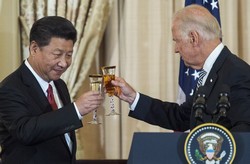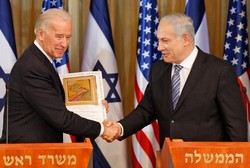The incoming Biden Administration will likely take a different approach to foreign policy than the current Trump administration. Throughout his political career, President-elect Joseph Biden has spoken highly of global cooperation and multilateralism.
He has promised to rejoin the Paris Climate Accord that the Trump Administration withdrew from, and the World Health Organization that the administration submitted a notice of withdrawal from during the summer. In addition, Biden has promised the United States’ continued support of international alliances such as NATO.
In contrast to Biden, the Trump Administration has supported an “America First” foreign relations vision. Political strategists have described President Trump as maintaining an “isolationist” or “protectionist” position on many foreign policy issues.
Non-interventionism has also been exemplified during Trump’s presidency in his recent decision to support the withdrawal of soldiers in Afghanistan.
The United States’ role in the Middle East is a concern for the incoming administration. Saliba Sarsar, Ph.D., a Professor of Political Science, discussed the possible implications of the region’s geopolitical future.
He said, “I think under a Biden Administration there will be more stability in the Middle East. This issue is obviously not easy to fix because of the various interests, cultures, and issues in the region, but American leadership does make a difference in terms of diplomacy.”
He continued, “Biden’s leadership seems to be more predictable and empathic compared to President Trump’s. In terms of trends, I believe that we will see a check on the intensity of authoritarian rule such as in the Gulf countries and in Egypt. We can only predict what could happen, but we will see as time goes by.”
The United States will continue its alliance with the Gulf States. Sarsar is optimistic about this partnership. He said, “America and most of the Gulf States are strategic allies and have many common interests, including trade, oil, a united front against Iran, and regional terrorism.”
However, Sarsar believes there will be some changes with the partnership. He said, “One difference now is that the incoming administration will most likely emphasize human rights as a concern with these countries and the international community.”
“I also think that the improved relations between Israel and the Gulf States and other Arab states will continue to improve in the future,” Sarsar said.
Iran is another country in the region with which the Biden Administration will explore new options or opportunities.
Sarsar noted, “I am not sure what to expect yet, but I think America’s relationship with Iran could be more accommodating under Biden. There is a possibility that the United States might rejoin the Iran nuclear deal framework agreement reached during the Obama Administration or negotiate a new and improved nuclear deal.”
He continued, “The relationship with Iran now is different than it was years ago. There is more new intelligence than before and there have been changes in the region since the Obama years. If a deal is made it would have to consider the national security interests not only of the West, but also the Gulf States and Israel.”
The Biden Administration could possibly serve as a catalyst for improved Arab-Israeli relations. Sarsar noted, “I am confident there will be a new perspective. Biden has said he is open-minded to a two-state solution and working with both the Israelis and Palestinians.”
“He seems to be aware of initiatives and solutions to please both sides, compared to the current administration which was focused mostly on advancing a strong relationship solely with Israel. However, peace and cooperation in this region will have to be determined by both the Israelis and Palestinians ultimately,” Sarsar said.
The relationship between Russia and the United States will also be a security concern for the incoming cabinet.
“I think at the start, the Biden Administration will pursue a harder line with Russia than either the Obama Administration or the Trump Administration,” noted Thomas S. Pearson, Ph.D., a Professor in Russian History.
“Unlike Obama, Biden will not pursue a reset with Russia. At this point it would bring the U.S. no benefit and Putin knows it (in fact, he will play up the U.S. hostility to rally Russian public support for the Kremlin),” Pearson stated. “However, with Trump out of the White House, Putin will have fewer options in trying to weaken NATO and promote his attacks on liberal democracy.”
Pearson added, “At the same time, Biden will deal with Russia on matters of mutual interest such as temporarily renewing the [Stratigic Arms Reduction Treaty] START treaty.”
“Russia is concerned that a Biden Administration might place more weapons systems in Europe, keeping with his claim that Russia represents the greatest current threat to the U.S. But I would be surprised if that happened, unless a major U.S.-Russia crisis occurred, because Biden will need to focus on tackling an array of domestic issues (COVID response, economic recovery, protecting health care) and rebuilding relations with U.S. allies,” Pearson said.
Pearson also mentioned the domestic implications for Russia’s foreign relations. He said, “The problem for Putin is that the near term with Biden as president will not provide Russia any relief on sanctions or recognition of Russia’s claims to Crimea, which will mean continued economic hardship for Russians. That will cut into Russian public support for Putin.”
He continued, “Russia requires significant structural reforms to improve its economy, but there is little evidence after a decade of promises that Putin has the courage to follow through.”
Joe Zecchino, a senior finance and economics student, shared his opinion on the connections between foreign policy and the economy for a Biden Administration.
Zecchino said, “I see a lot of similarities with the Obama and Biden Administrations. His administration will go back to America’s globalist roots that were in effect for the last 40 years.”
He continued, “Unfortunately, these policies by both Republicans and Democrats have left working-class Americans with stagnant economic growth (for example Flint, Michigan and Scranton, Pennsylvania), while allowing developing nations to become global powerhouses.”
President-elect Biden will face challenges from the Far East. China has risen to become a regional hegemon and a concern for neighboring U.S. allies.
Over recent years, the two countries relations have weakened due to diplomatic disputes. Some of the issues America and China argue about include the trade war, the South China Sea conflict, concerns over human rights violations in Hong Kong, and the handling of the COVID-19 pandemic.
Zecchino responded, “As for this situation [China], I think that a Biden Administration will replace President Trump’s trade deals. We will most likely see open trade between the two countries regardless of cost of labor and currency rates, just to name a few. Nonetheless, I think the U.S. will have a more stable relationship with China in the next few years, for better or for worse.”
Zecchino also analyzed America’s business relations with neighboring Mexico and Canada. He said, “I am really curious to see what happens with [the United States- Mexico- Canada agreement] USMCA.”
“Biden, similar to Trump, has openly favored it over NAFTA, but any major changes would be a great concern for American workers, especially in the Midwest’s agricultural region and the West’s mining states,” Zecchno noted. “In general, with more potential regulations, I think Wall Street will survive but Main Street might suffer.”
IMAGE TAKEN from wbur
IMAGE TAKEN from The Conversation



